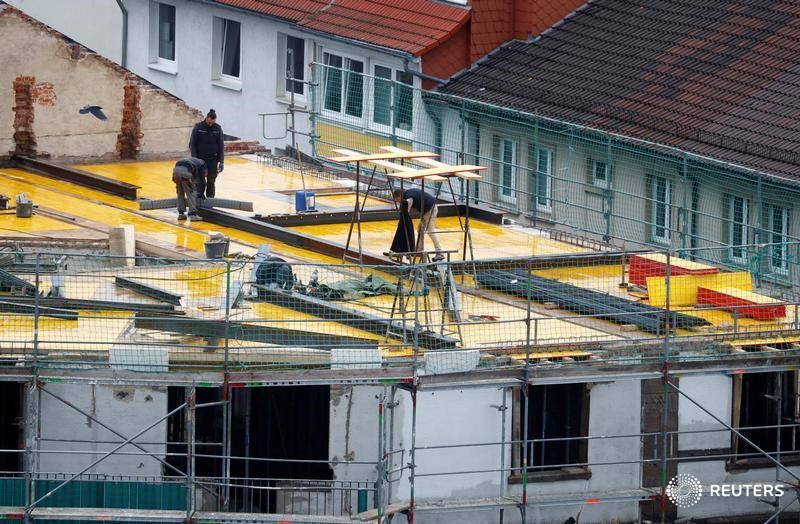By Michael Nienaber
BERLIN (Reuters) - The number of German residential building permits jumped by 31 percent to over 148,000 in the first five months of 2016, data showed on Friday, suggesting construction will continue to support economic growth this year.
With borrowing costs at record lows, Germans are increasingly flocking to property. Higher state spending on social housing, also to accommodate a record-influx of migrants, is giving the construction sector an additional push.
The booming construction sector is currently one of the main growth drivers in Europe's largest economy. In the first three months of 2016, construction investment was one of the biggest growth contributors while net foreign trade was a drag.
But recent data show that building activity slowed in April and May. The lower construction output is mainly due the mild winter, meaning construction work was pulled forward and with it the usual spring recovery, analysts say.
The latest data from the Federal Statistics Office indicated, however, that construction will continue to support growth. Authorities issued permits for 127,140 new residential units and approved work at 21,251 existing buildings.
Approvals for the 'hostel residences' sub-category of homes, which also includes shelters for refugees and asylum seekers, more than tripled to 10,287 compared to the first five months in the previous year.
The total of 148,391 marked an increase of 31 percent on the year. This was the highest number of approvals granted in the first five months since 2000, showing that last year's positive trend in the construction sector is set to continue in 2016.
BLOCKED PLAN
In 2015, the number of residential building approvals rose by more than eight percent to nearly 310,000, the highest in 15 years. The number of completed residential units edged up 1 percent to some 248,000 last year.
Property experts say that at least 350,000 new homes are needed every year until 2020 to tackle a drastic shortage of affordable housing, caused by a growing urban population and aggravated by a record influx of refugees.
Even before the refugee numbers started to increase last year, there was an estimated lack of 800,000 affordable flats in urban areas. With demand outstripping supply, property prices and rents have soared in cities like Berlin, Hamburg and Munich.
In order to reach the goal of at least 350,000 completed flats, the government agreed to grant special tax incentives for investors who build flats in urban areas.
But parliament stopped the plan. Lawmakers said the tax incentive scheme was designed too broadly and would therefore also support the building of luxury apartments.

The federal government is now thinking about raising its funds for social housing again.